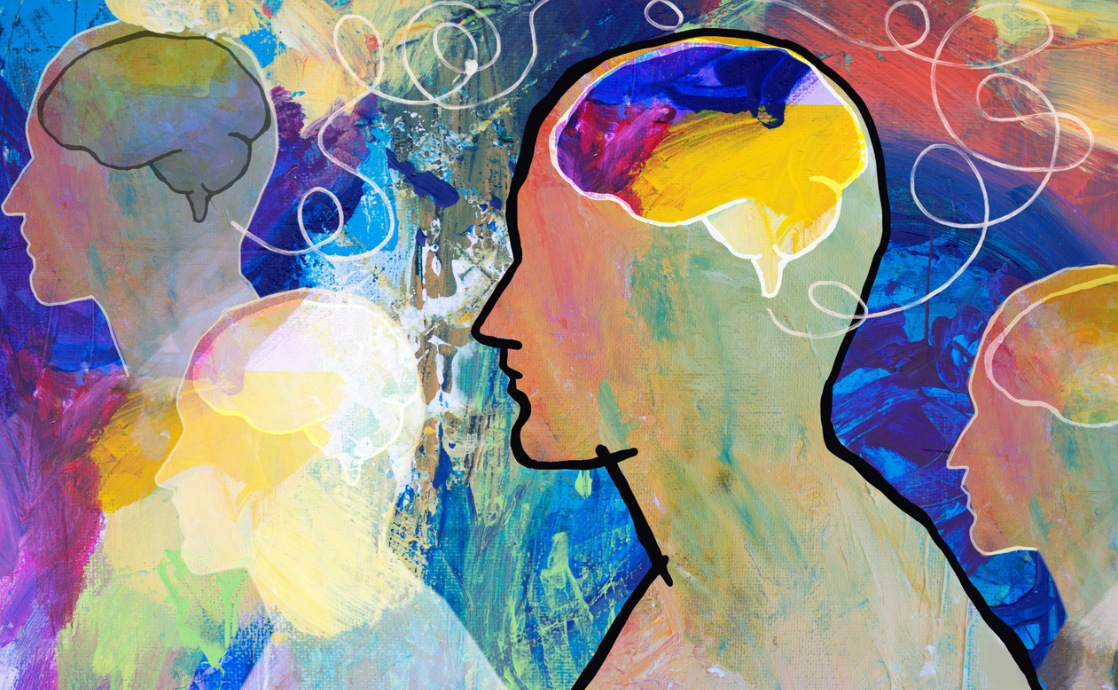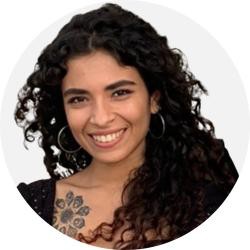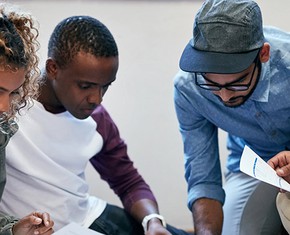The views expressed in our content reflect individual perspectives and do not represent the authoritative views of the Baha'i Faith.
Cutting-edge science has begun to determine that we can genetically “inherit” the trauma our parents and grandparents have experienced in their lives.
A few months ago I read a book that left me impressed. The book – It Didn’t Start With You: How Inherited Family Trauma Shapes Who We Are and How to End the Cycle by psychologist Mark Wolynn, a pioneer in the study of inherited family trauma – draws on his work as a psychologist and director of the Family Constellation Institute.
I’ll try to summarize the main idea of the book in a sentence: scientific and experiential evidence now shows that our past family history can be the source of our current emotional problems and fears – and can also give us concrete tools for healing.
So yes, although it may sound curious at first, we can inherit our inner trauma.
RELATED: Trauma: How Can We Heal Our Wounded Souls?
The book expands on the idea of how the traumas of our ancestors are stored epigenetically in the cells of their bodies, which then through procreation can be transmitted from generation to generation. It also tells us how the unresolved problems of our parents, grandparents, or great-grandparents can appear again in the lives of their descendants, until one of them heals the wound and makes a significant change in their lives.
Wolynn writes that it is sometimes possible to see the same situations happen to grandparents, parents, and their children – that shared familial trauma can manifest itself in similar self-destructive behaviors. In other words, we can all have unresolved fears or negative thoughts, and even problems of anxiety or depression without explanation, in our genetic makeup.
The book recounts the true story of one of Mark Wolynn’s patients – Sandy, the daughter of a holocaust survivor – who always had a terrible fear of death, along with claustrophobia that prevented her from getting on planes and elevators. Sandy’s biggest fear about death was not just dying, it was “knowing that she is going to die and not being able to do anything to avoid it.” About her claustrophobia she would say “the elevator door or the plane will close and I will have a big mass of people in front of me, I can’t breathe, I can’t get out.”
By delving into her family history the psychologist discovered that Sandy’s grandparents and her aunt, her father’s sister, had died in the gas chambers of Auschwitz, which made a connection to Sandy’s greatest fears.
In my own experience, I was able to reflect and discover the origin of one of my biggest fears.
Even consciously, that fear did not make sense to me – but not all deep fears are inherited. My biggest complaint in life has always been “I’m going to stay alone, I’m old and I’m not going to find anyone, I’m getting older,” followed by “If I stay alone, I won’t have anyone to support me in the worst moments, life will be too heavy for me.”
I should note that I am 25 years old. I’ve had this irrational fear of being alone since I was 18, and it occupies my thoughts constantly – but I recognize that my fears have no coherence with my actual life and no real basis in reality.
So after reading the book I talked to my grandparents and parents, to try to know a little more about their stories. I was struck by the maternal family history, learning that my maternal great-grandfather lost his wife when he was young and raised his three young children alone. He never remarried and never met anyone again.
Also, I learned that my maternal grandmother separated from her husband at 44 years old and finished raising her two daughters alone, never remarrying; and finally, that my mother also separated from my father at the age of 44, and although my dad was always there, she never had a partner or married again.
All of this caused me to start thinking about where my “I am old, I am going to be alone, I am getting older” fears came from. I thought about all these people in my family history, and how they all could have these same thoughts that I repeated in my own mind without knowing or being aware, and how their stories shared similarities, as if they were repeating themselves.
But above all, I reflected on the importance of re-establishing the bonds of harmony with the two beings who gave me life, my parents.
Reading the book, and prayerfully reflecting and meditating on what I’d learned, I realized that healing inherited traumas and stopping repetitious family histories can happen by forgiving and having compassion towards our parents. To heal, and cut the inherited thread of trauma, we must feel a genuine and sincere love for our parents, as when we were babies and adored our mother. The key is to rebuild the broken relationships with our parents, and not leave a single bit of bad feeling, anger, alienation or rejection towards them.
Clearly, this internal process takes time. Even if a parent does not cooperate in rebuilding a close relationship, the important thing for healing is to forgive them internally, love them as we can, pray for them and leave our hearts clean, regardless of what happened and what they have done.
RELATED: What Is True Forgiveness?
The Bab, the forerunner and herald of Baha’u’llah, wrote:
It is good for the servant of God, after every prayer, to supplicate to God that He may grant His mercy and forgiveness to his parents. … Blessed is he who remembers his parents in communing with God.
In my own process of healing, I tried to reflect on whether I had any guilt, rejection or judgment towards my mother. When I found some of those things deep inside me I talked with her and shared this reflection. I forgave her, I asked her for forgiveness and asked the Creator for forgiveness as well. Over time I worked on it consciously, knowing that all change requires effort.
Today, several months after this process began, I realized that my fear is gone. I no longer feel stress about the future, nor am I afraid of being alone. With this inner realization and growth, I can also make sure that my future generations do not have the same problems and emotional fears that can condition and harm their lives.
The pattern is broken, and I’ve learned that we can all break those inherited patterns if we work on them.
The Baha’i teachings have inspired me to continue loving my parents, to have compassion for them, to be flexible with them, because they are also human and also make mistakes. They have each suffered and are not perfect, just like us. Above all, I’ve become aware that the genetic and energetic bonds that I share with them are very strong.
Regarding our parents, Abdu’l-Baha said: “Comfort your mother and strive to do that which will bring happiness to her heart.” He also wrote:
Day and night he should diligently endeavor to secure the comfort and welfare of his loving father and preserve his approval. He should give up his own rest and amusement, and should constantly strive to gladden the hearts of his father and mother, so that he may thereby attain the Almighty’s good pleasure and be munificently assisted by the hosts of the Unseen.
This exercise of forgiveness and healing toward our parents and their own traumas also contributes to one of the greatest teachings of the Baha’i Faith – unity. Abdu’l-Baha said “If love and understanding are manifested in a single family, that family will progress, will be filled with light and spirituality.” This unity will translate into pure love within the family, and benefit every succeeding generation.
















Comments
Sign in or create an account
Continue with Googleor